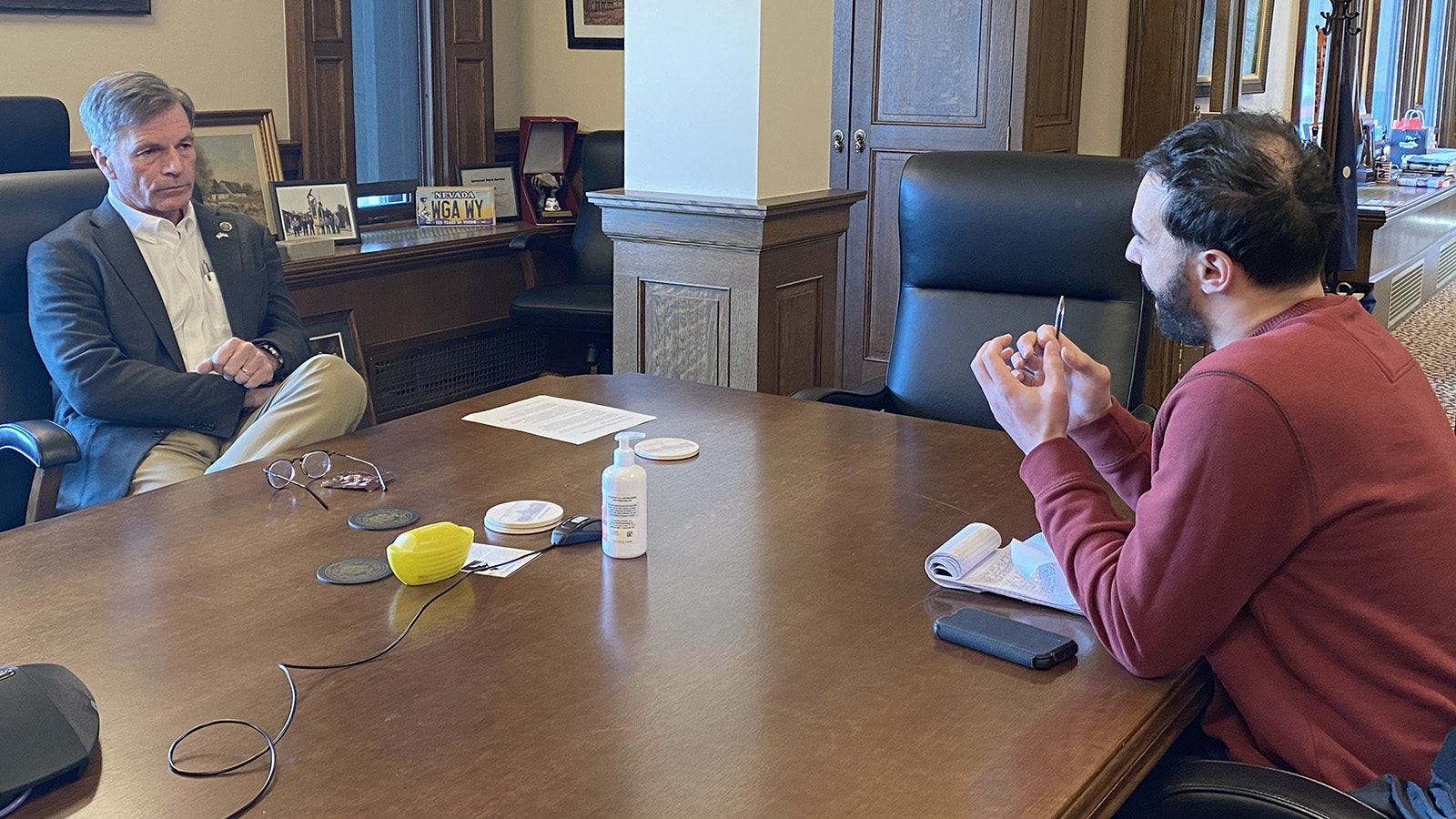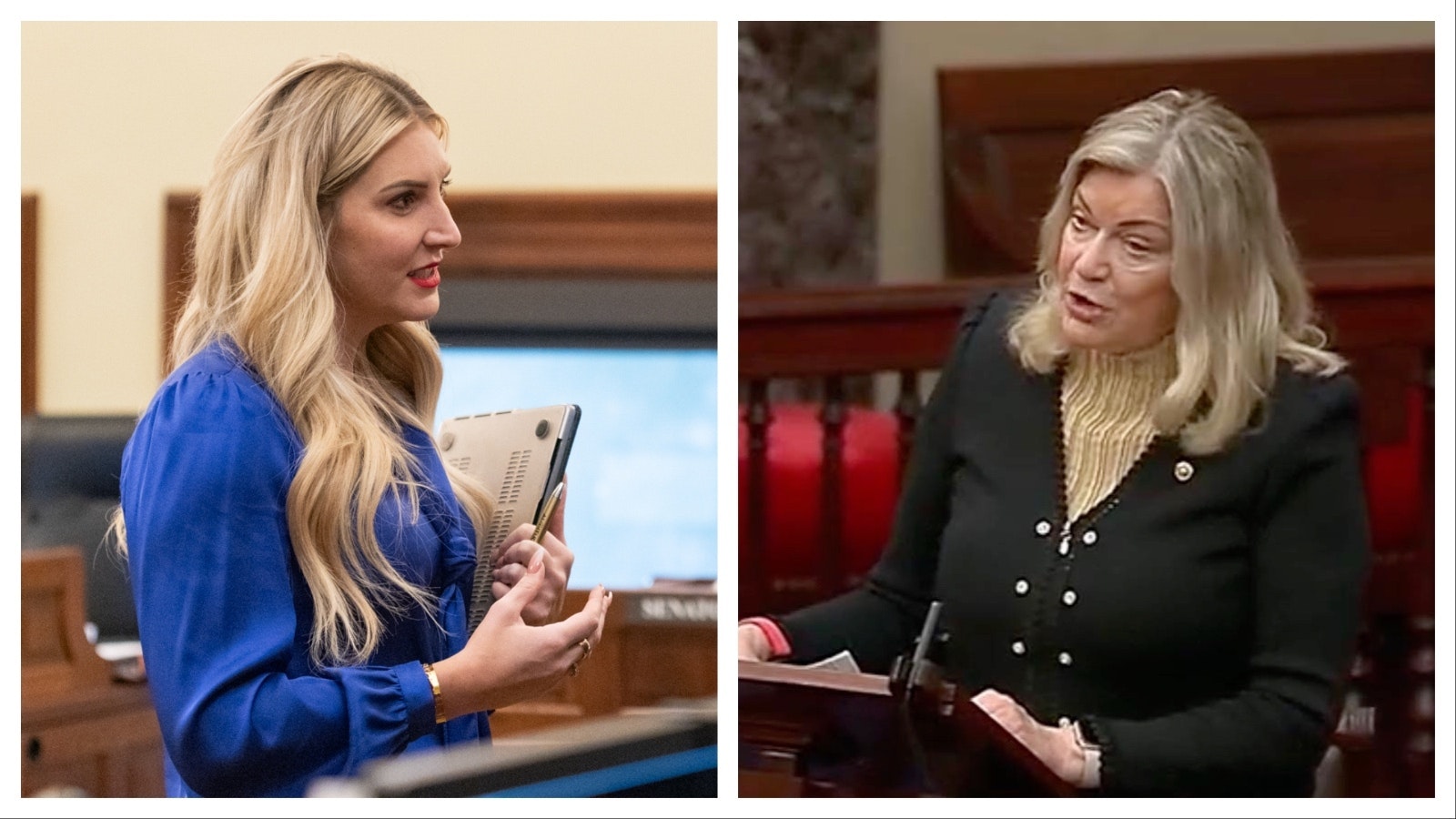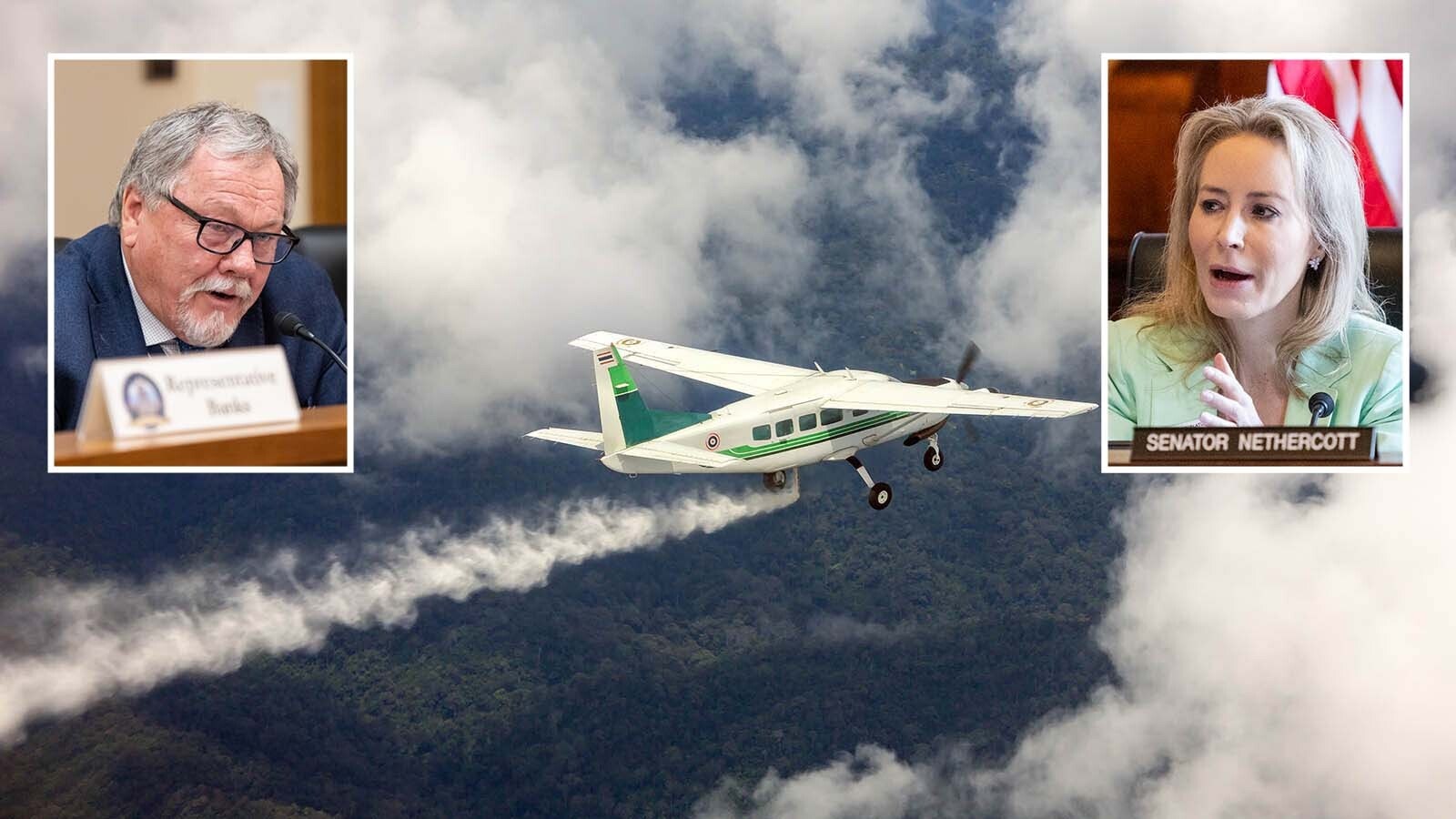If you ask Gov. Mark Gordon about his style of governing, he says he’s stubbornly dedicated to a focus on Wyoming.
Many around Wyoming and the United States seem to agree, some to the point of criticizing him for it, saying he has missed opportunities to get ahead of problems happening elsewhere that may be coming to Wyoming in the near future.
Often during his four years in office, Gordon has avoided taking controversial stances or speaking directly against or for some issues, eschewing the national spotlight that gives other governors like Florida’s Ron DeSantis and South Dakota’s Kristi Noem a national profile.
But Gordon told Cowboy State Daily in an interview on Friday that he believes actions speak louder than words. And a closer look at Gordon’s bill signing record shows he has taken clear stances on a number of issues important to Wyoming residents.
Gordon said he supports local control and conservative policies, but some state and national Republicans have found fault with him not being as conservative as they would like.
Even so, Gordon was reelected with an overwhelming majority of the vote in the 2022 primary and general elections.
Blasé About Backlash
Gordon received significant backlash over the past week for his decisions to let three controversial bills pass into law. One prohibits nearly all abortions, another prevents biological males from participating in girls’ sports and the third makes Wyoming the first state in the nation to ban prescribing chemical abortion drugs.
While the governor didn’t sign two of the three high-profile bills, Gordon has since been the target of a vitriolic response from Democrats and some conservatives who wanted him to send a more definite message by signing them all.
Gordon said he doesn’t pay attention to the criticism.
“I don’t think they hired me to sort of be their happy guy,” Gordon said. “I think they hired me because they thought that I would bring attention and thought to the matters brought before me and my judgment.”
Even U.S. Vice President Kamala Harris weighed in, slamming Gordon and other Wyoming lawmakers for passing the chemical abortions bill, the first of its kind in the nation. She criticized the bill in a tweet, calling it “extreme legislations” and Wyoming lawmakers and Gordon “so-called leaders” for pushing the legislation and allowing it to become law.
Gordon chuckled when asked about her input, saying he wasn’t aware of what Harris had said.
“Wyoming’s ability to lead is something I’m very proud of,” Gordon said. “I don’t look for national attention.
“It’s not that I’m either immune or oblivious to them (national criticisms), I just don’t think they weigh heavily on what I think makes sense for Wyoming.”
Former Gov. Mike Sullivan said whether the governor signs a bill or lets it pass into law without a signature is a political statement that also can sometimes be personal in nature.
“You’re always walking a fine line for sure,” he said.
Abortion
Based on his bill-signing record, it’s clear that although Gordon says he’s pro-life on abortion, he does not always believe matters of abortion should be handled by the Legislature. Conversely, he doesn’t feel so strongly on the matter that he has ever vetoed any abortion bans.
Gordon signed Senate File 109, the chemical abortion ban, but did not sign House Bill 152, a more-specific version of the 2022 abortion ban that “triggered” into effect after the U.S. Supreme Court overturned Roe vs. Wade last June. He did sign the 2022 bill.
When announcing his decision to not sign Wyoming’s abortion ban last week, Gordon expressed concern “that this new law will only result in a new lawsuit, which will delay any resolution to the constitutionality of the abortion ban in Wyoming.”
And as predicted, on Wednesday, Teton County District Court Judge Melissa Owens blocked House Bill 152 from taking effect. Owens said abortion qualifies as a form of health care, and restricting it would violate the Wyoming Constitution’s promise of “health care” autonomy to state residents.
Gordon has said abortion should be an issue decided in a constitutional amendment brought to state voters to decide if they want to add an abortion ban to the Constitution, or by the Wyoming Supreme Court.
“It is fundamentally a constitutional question that has to happen,” he said. “(HB) 152 basically reset the clock. It delayed our ability to have it ultimately decided by the Supreme Court.”
Vetoes
Despite having one of the largest majorities of Republicans voters in the country, Wyoming has had a universal abortion ban halted two years in a row.
Sullivan said a governor must look past the sheer will of the people on certain decisions.
“My view is it’s not necessary that one should simply do what the majority wants if (the governor) feels strongly about it,” he said.
Gordon said he takes an active approach to addressing bills regardless of the potential for political fallout.
“If it needs to be vetoed, I’m happy to veto it,” he said.
That’s what he did this past session with Senate File 131, legislation that would have prohibited solicitation of absentee ballot request forms by third-parties. Gordon also vetoed House Bill 106, which would have prevented independent wind farms from using eminent domain to build power lines across private land.
“It really should go farther than private land, we should really talk about eminent domain everywhere,” Gordon said.
Transgender Sports
Despite calling the transgender sports ban “overly draconian” and “discriminatory,” Gordon allowed it to pass into law.
It was another decision met with significant derision from many progressive-leaning groups.
A former youth soccer coach, Gordon said he relates to and has studied both sides of the issue, seeing it as a crux between the right to participate and fair competition.
“To me, looking at these examples, case by case, trying to find a way that we don’t compromise the integrity of the sports competition outcomes,” Gordon said about how to approach biological males participating in girls’ sports. “But then recognize that these are individuals too and, as a Christian, I’m always remembering it was Christ who was always looking out for the least of us.”
Gordon said he met with three transgender athletes when considering whether to sign the bill.
“I didn’t get the sense that in any of those examples that the students have been unduly influenced by some doctrine or somebody’s coaching,” he said.
He also said he believes the Wyoming High School Activities Association has addressed the issue seriously in the past, leaving it up to individual schools to determine eligibility when making these types of reviews. So far, a review hasn’t been appealed.
The bill contains an alternate provision that would become effective if a court were to block or overrule the ban. In that event, the WHSAA would appoint an independent board to review transgender athlete appeals on a case-by-case basis.
“The intent of trying to assure the integrity of the sports competition, but also to try to accommodate the unique circumstances of a particular individual, none of those are easy,” Gordon said. “In my view, there was enough integrity in the bill that it should pass into law.”
What He Considers
Gordon said he must walk a tightrope when considering which laws to sign, what bills to let pass into law without his signature and what to veto.
“This is the state I love. This is the state I grew up in,” Gordon said. “So, I really try to think of what in my memory and my experience, what really makes sense for Wyoming. It’s heritage.”
When Gordon lets a bill pass into law without his signature or vetoes it, he said he typically attaches a letter explaining why he took the action he did.
Constitutionality is usually a significant consideration, he said, as is the will of the Legislature.
“You have to weigh the will of the Legislature,” he said. “They deliberated. The process, they worked through it.”
Gordon said he believes strongly in the separation of powers, a point he has made on numerous occasions. He said this separation must go both ways between the executive and legislative branches of government.
The governor does, however, have the option to perform line-item vetoes that can significantly impact how much funding is attached to a piece of legislation and alter its overall functionality.
“A bill is supposed to have a single subject and the budget is not where you legislate,” Gordon said.
In his first budget developed as governor in 2019, Gordon made a significant number of line-item vetoes. The Legislature overrode six of Gordon’s line-item vetoes to this year’s supplemental budget.
Sullivan said a governor must be wary about having his vetoes overridden too much. He said it happened to him a few times, a tough pill to swallow after he was unaware of it ever happening to his predecessor Ed Herschler, a three-term governor.
Gordon also made many line-item vetoes to Senate File 151 this year, which prohibits specified actions by pharmacy benefit managers and allows people to choose in-network retail pharmacies under certain circumstances.
The staunchly conservative Wyoming Freedom Caucus criticized Gordon’s changes to SF 151 in a Sunday press release.
“SF0151 was written to protect Wyoming’s rural pharmacies from predatory pricing schemes,” the Caucus writes. “As enacted, the law does not resemble the version debated and accepted by the Wyoming Legislature.”
Now in his second and final term as governor, Gordon is less likely to give in to outside pressures when making decisions on bills. But if he has higher aspirations to run for a higher office someday – he hasn’t said so one way or the other – the governor’s record will become his track record.





